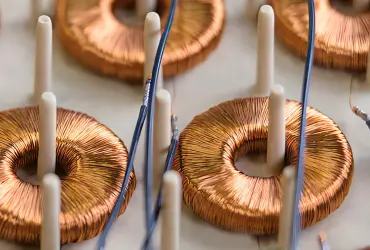Turn All Business Travel Into a Holiday
with a Team That Understands
What You Need
Upcoming Trade Shows Stuttgart, Germany for Electric & Electronics

VISION 2026, Stuttgart, Germany
6 - 8 Oct 2026

eltefa 2027, Stuttgart, Germany
2 - 4 Mar 2027

EMV 2025, Stuttgart, Germany
Coming soon
The electronics industry in Stuttgart is ready to enter in a brand new era thanks to the University of Stuttgart's recent acquisition of a DragonFly IV 3D printer from Nano Dimension. This advanced manufactured electronics (AME) 3D printing system holds the key to unlocking the potential of scalable quantum sensors, paving the way for groundbreaking advancements in various sectors. Quantum sensors harness the principles of quantum mechanics to achieve unparalleled sensitivity and precision in measurements. These sensors have the potential to revolutionize fields like medicine, autonomous navigation, and renewable energy. However, scaling up promising prototypes for mass production has remained a significant challenge.
The University's Institute of Smart Sensors (ISS) and the 3rd Institute of Physics (PI3) are at the forefront of tackling this challenge and the DragonFly IV is the necessary breakthrough. The 3D-electronic-integration capabilities of the Dragonfly open up new possibilities for microelectronic and photonic integration of scalable quantum devices. Finding technology that meets the university’s demanding needs for integrating qubits for quantum sensing and computing is rare. Nano Dimension's 3D printing technology offers a solution - simultaneous deposition. The DragonFly IV can simultaneously deposit conductive and dielectric materials, crucial for building functional quantum sensors.
The acquisition of the DragonFly IV is part of the University's participation in the QSens program, funded by the German Federal Ministry of Education and Research. This program brings together the University, 19 industry partners, and 3 research institutes, all working towards achieving large-scale market entry for scalable quantum sensors within the next 3-5 years. This technology has the potential to create entirely new markets and applications. By attracting talent, fostering research collaborations, and potentially leading to spin-off companies, the University's work with the DragonFly IV can significantly propel Stuttgart's electronics industry to the forefront of the quantum revolution.
GET A FREE QUOTE
Looking for a hotel accommodation for particular trade show or exhibition.
Send us a general enquiry and we will find the best options for you
Send us a general enquiry and we will find the best options for you